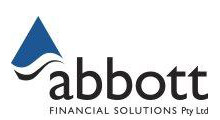Look for a good currency exchange rate and check the fees when sending money overseas. A small difference can mean more money gets to your family or friend.

Types of overseas money transfers
Money transfer company
A money transfer company is usually the cheapest way to get money to someone overseas. The company can either move the money to the other person’s bank account, or arrange for the person to collect the money in cash at a local branch or agent.
You can transfer money:
-
online, and pay using your credit card
-
in person at a branch or agent, and pay using cash or EFTPOS
The transfer is usually faster if you do it in person than online, but you’ll pay higher fees.
You can transfer money online or in person with Western Union through Australia Post. See International money transfer with Western Union on the Australia Post website.
Bank transfers
You can transfer money by moving money from your bank account directly into an overseas bank account. This is called a money transfer, a telegraphic transfer (TT), or a wire or SWIFT transfer.
Banks can be a more expensive option. The ACCC found the big four banks are consistently more expensive than other suppliers for foreign cash and international money transfers. The exchange rate is generally less competitive. A bank transfer can also take up to five business days to go through.
International money order
An international money order is when the bank gives you an internationally guaranteed cheque. This also called an international bank draft.
You then post the cheque to the other person, and they cash or deposit it at their bank.
This is more secure than sending a personal cheque, but it’s slower and more expensive than an online transfer.
Keep your receipts and transfer documents. Check the time limit for claiming a refund, in case the other person doesn’t receive or claim the funds.
Compare exchange rates for money transfers
It’s worth shopping around for a good currency exchange rate. There are significant price differences amongst companies. You can save a lot of money, especially if you transfer a large amount or often.
Compare the rates and types of transfers on these independent sites:
-
SendMoneyPacific – For money sent from Australia to the Pacific Islands.
-
SaverAsia – For money sent from Australia to countries in Asia.
-
Remittance Prices Worldwide – The World Bank’s website for other international transfers.
Compare these features:
|
Currency exchange
|
|
|
Exchange rate guarantee |
|
|
Transfer fees and commission |
|
|
Payment method |
|
|
Transfer time |
|
|
Transfer amount |
|
|
Receive method |
|
If something goes wrong
You and the recipient should both contact the money transfer company if there’s a problem with the transfer.
If you’re not satisfied with their response, you can complain to the Australian Financial Complaints Authority (AFCA).
Scams
If you send money to someone and that person turns out to be a scammer, it’s almost impossible to get your money back. Be very careful who you send your money to. Visit the Scamwatch website for more information.
Source:
Reproduced with the permission of ASIC’s MoneySmart Team. This article was originally published at https://moneysmart.gov.au/banking/sending-money-overseas
Important note: This provides general information and hasn’t taken your circumstances into account. It’s important to consider your particular circumstances before deciding what’s right for you. Although the information is from sources considered reliable, we do not guarantee that it is accurate or complete. You should not rely upon it and should seek qualified advice before making any investment decision. Except where liability under any statute cannot be excluded, we do not accept any liability (whether under contract, tort or otherwise) for any resulting loss or damage of the reader or any other person. Past performance is not a reliable guide to future returns.
Important
Any information provided by the author detailed above is separate and external to our business and our Licensee. Neither our business nor our Licensee takes any responsibility for any action or any service provided by the author. Any links have been provided with permission for information purposes only and will take you to external websites, which are not connected to our company in any way. Note: Our company does not endorse and is not responsible for the accuracy of the contents/information contained within the linked site(s) accessible from this page.


